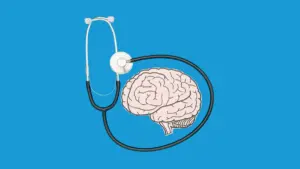Understanding alcohol dependence can help you recognize it in yourself or someone you care about and take the right steps toward healing.
Here, you’ll discover what alcohol dependence looks like, how mental health challenges like anxiety and depression can play a role, and the different ways people can get help.

What It Means to Have Alcohol Dependence
Alcohol dependence is when a person feels like they have to drink alcohol to function, relax, or get through the day. It goes beyond just drinking too much once in a while; it’s a medical condition where someone keeps drinking even though it’s hurting their health, job, or relationships.
There’s a difference between alcohol abuse and alcohol dependence. Alcohol abuse means drinking in a damaging way, like binge drinking or getting into trouble because of drinking. Alcohol dependence means your body and brain have become used to alcohol, and now, you feel sick or anxious without it.
In 2020, more than 28 million people in the U.S., aged 12 and up, had what doctors call alcohol use disorder.1 This means they couldn’t stop drinking even though it was causing serious problems in their lives.
Drinking heavily over time can change how your brain works. It affects parts of the brain that control pleasure, stress, and self-control.2 These changes make it very hard to stop drinking, even when someone wants to, and often lead to compulsive drinking, or drinking that feels out of your control.
Mental Health Factors That Cause Alcohol Dependence
Many people with anxiety or depression turn to alcohol to ease their symptoms. This is called self-medication. Studies using national surveys have shown:
- About 20% of people with anxiety disorders drink alcohol specifically to reduce anxiety. Those who do are much more likely to develop alcohol dependence over time compared to those who don’t self-medicate.3
- Drinking to self-medicate anxiety greatly increases the chance of getting alcohol dependence and its persistence:
- Adjusted odds ratios around 5.7 for developing dependence, and over 6 for staying dependent later.4
- Adjusted odds ratios around 5.7 for developing dependence, and over 6 for staying dependent later.4
- Likewise, mood (depression) self-medication is linked to 3 times higher odds of developing and maintaining alcohol dependence.
Why This Happens
- According to the self-medication theory, alcohol temporarily relieves negative feelings, reinforcing its use.3
- Unfortunately, this leads to higher alcohol use – a key step toward dependence.
Dual Diagnosis: When Two Conditions Co-Exist
The term dual diagnosis means having both a mental health issue (like anxiety or depression), and a substance use disorder (like alcohol dependence).
Below are some key takeaways:
- In the U.S., around 17 million adults had dual diagnoses in 2020.5
- Mental health and alcohol use disorders share common risk factors, such as genetic vulnerability, stress, and past trauma.
- These conditions can worsen each other. Anxiety makes alcohol problems harder to beat, and alcohol misuse can make anxiety and depression more severe.
Brain Connections
Neuroscience research shows that overlapping brain circuits are involved in both anxiety and alcohol misuse. These include areas for managing stress, emotion, and reward, like the amygdala and prefrontal cortex.6
People with anxiety or depression often move more quickly from casual drinking to addiction, which is a pattern called telescoping.
Methods to Treat This Diagnosis
When someone is diagnosed with alcohol dependence, the good news is that treatment is available and it works. But it’s important to understand that stopping alcohol isn’t always as simple as quitting on your own. Trying to stop “cold turkey” can be risky.
Research shows that about half of the people with alcohol use disorder who stop drinking suddenly experience alcohol withdrawal syndrome. This means they can have symptoms like shaking, sweating, anxiety, nausea, or even seizures. Some people may also feel confused or have hallucinations. These symptoms can start just hours after the last drink.
That’s why going cold turkey without medical help isn’t recommended for everyone. It can be dangerous, especially for those who’ve been drinking heavily for a long time.
Safe and effective treatment methods include:
1. Medical Detox
- This is often the first step. Doctors help a person stop drinking safely, sometimes using medications to ease withdrawal symptoms.
- Detox usually happens in a hospital or special clinic, especially if someone has tried going cold turkey before and had bad reactions.
Best candidate for this method: People who drink heavily every day and feel sick or shaky when they stop are the best fit for medical detox. It’s also for those who have had seizures, confusion, or very strong withdrawal symptoms in the past. If someone tried to quit before and it didn’t go well, detox in a safe place with medical help is the right move.
2. Inpatient or Outpatient Rehab
- Inpatient rehab means staying at a treatment center full-time. It gives 24/7 support and care.
- Outpatient rehab lets you live at home while attending regular therapy sessions.
Best candidate for inpatient: This is best for people who need to step away from their daily life to focus fully on recovery. It helps those who don’t have a strong support system at home, have tried to quit many times, or have both alcohol problems and mental health struggles (like depression or anxiety). If someone keeps going back to drinking and needs a fresh start, this is a good choice.
Best candidate for outpatient: This works well for people who are stable enough to live at home but still need regular help. It’s a good fit if you have a strong support system, like family or friends, and can stay away from alcohol while getting treatment. It’s also helpful if you have to keep working or taking care of kids while getting help.
3. Therapy and Counseling
- Talking with a counselor helps people understand why they drink and how to build healthier habits. Common methods include:
- Cognitive Behavioral Therapy (CBT) helps change negative thinking.
- Motivational Interviewing helps people stay focused on their recovery goals.
Best candidate for this method: Best for people who want to understand why they drink and learn better ways to cope. It’s good for those who may feel stressed, sad, or anxious often, or who drink to deal with their emotions. It also helps if you’ve had trauma in the past or want to build better habits after other treatments like detox.
4. Medication-Assisted Treatment (MAT)
- Medicines like naltrexone, acamprosate, or disulfiram can reduce cravings or help prevent relapse.
Best candidate for this method: This is helpful for people who have strong cravings and have trouble staying sober. It’s a good fit if you’ve already gone through detox or rehab but still feel tempted to drink. It can also help if you’ve relapsed before and want extra support staying alcohol-free.
5. Support Groups and Peer Help
- Recovery groups give people support from others who’ve been through similar experiences.
Best candidate for this method: These are great for people who want to stay sober long-term and feel encouraged by others who’ve been through the same struggles. It’s great for building connections, staying motivated, and not feeling alone in recovery. It works well alongside other treatments, too.
Conclusion
Treating alcohol dependence takes time and support. While quitting alcohol cold turkey may seem like the fastest way, it can be unsafe for many people. A better option is to work with doctors and counselors to find the right plan, whether it’s detox, rehab, therapy, or medication. Getting help means you don’t have to go through it alone.
If you or someone you love is struggling with alcohol dependence, you don’t have to face it alone. OceanRock Health and South Coast Counseling are here to help, offering expert care, compassionate support, and personalized treatment plans that meet you where you are.
Contact us today. Healing starts with a conversation. We understand that every person’s journey is different, and we’re ready to help you find the path that works best for you.

Sources:
- (n.d.). 2020 NSDUH Highlights [Review of 2020 NSDUH Highlights]. In https://www.samhsa.gov/. SAMHSA. https://www.samhsa.gov/data/sites/default/files/2021-10/2020_NSDUH_Highlights.pdf
- National Institute on Alcohol Abuse and Alcoholism. (2021). The Cycle of Alcohol Addiction. Www.niaaa.nih.gov. https://www.niaaa.nih.gov/publications/cycle-alcohol-addiction
- Menary, K. R., Kushner, M. G., Maurer, E., & Thuras, P. (2011). The prevalence and clinical implications of self-medication among individuals with anxiety disorders. Journal of Anxiety Disorders, 25(3), 335–339. https://doi.org/10.1016/j.janxdis.2010.10.006
- Crum, R. M., La Flair, L., Storr, C. L., Green, K. M., Stuart, E. A., Alvanzo, A. A. H., Lazareck, S., Bolton, J. M., Robinson, J., Sareen, J., & Mojtabai, R. (2012). REPORTS OF DRINKING TO SELF-MEDICATE ANXIETY SYMPTOMS: LONGITUDINAL ASSESSMENT FOR SUBGROUPS OF INDIVIDUALS WITH ALCOHOL DEPENDENCE. Depression and Anxiety, 30(2), 174–183. https://doi.org/10.1002/da.22024
- (n.d.). Key substance use and mental health indicators in the United States: Results from the 2020 National Survey on Drug Use and Health. [Review of Key substance use and mental health indicators in the United States: Results from the 2020 National Survey on Drug Use and Health.]. In https://www.samhsa.gov/. https://www.samhsa.gov/data/sites/default/files/reports/rpt35325/NSDUHFFRPDFWHTMLFiles2020/2020NSDUHFFR1PDFW102121.pdf
- Anker, J. (2019). Co-Occurring Alcohol Use Disorder and Anxiety: Bridging the Psychiatric, Psychological, and Neurobiological Perspectives. Alcohol Research: Current Reviews, 40(1). https://doi.org/10.35946/arcr.v40.1.03







